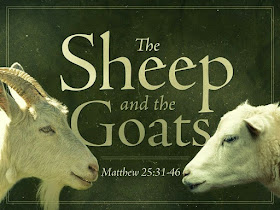It is appropriate, as we begin a new year, that John's gospel is our text this week, opening with "In the beginning was the Word," λόγος , logos, in Greek. This week we learn more about the nature of The Word made flesh, who lives - not just lives- among us, but who tabernacles with us, full of grace and truth, the meaning of grace and truth. And the gift, as well as the giver, and what that means for us. See The Rev. Edward Marquart's "The Word Became Flesh."
Just how much do we mean to God, and each other? Especially in these times. What can we rely on so we do not lose our way? See The Rev. Whitney Rice's "In the beginning..." She concludes with "This is why scripture matters so much. Because when real life comes crashing in, when the divorce papers are served, when the job loss happens, when the cancer or Alzheimer’s diagnosis comes through, we have to have somewhere to anchor our souls. And we do, in a few simple words a man named John wrote a very long time ago. “The light shines in the darkness, and the darkness did not overcome it.” The hard knocks of life plus the poetry of scripture give us the chance to build our lives so that we become a word of poetry ourselves, one little phrase expressed by the great Word that is God." The Rev. Cannon Anna Sutterisch says the birth and life of Christ transforms the relationship of God and humanity in Right Relationships." Dan Clendenin challenges us to mean what we say or routinely recite in "Ox and Ass Before him bow."














